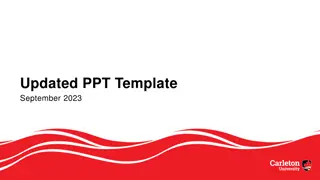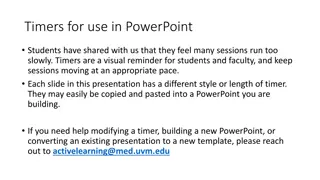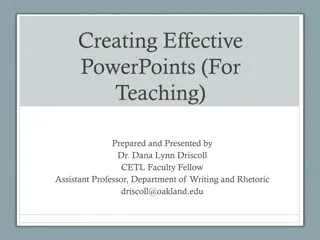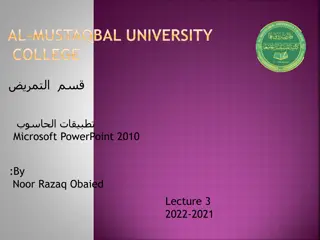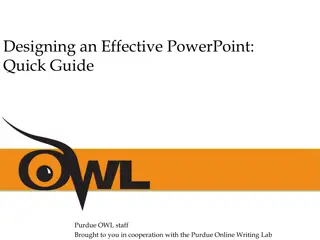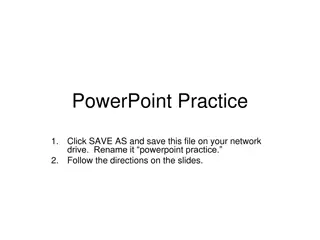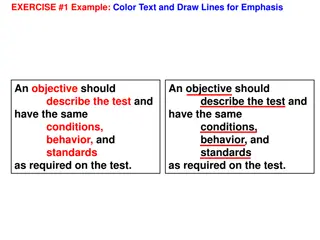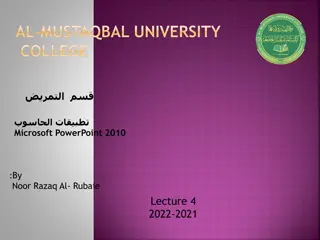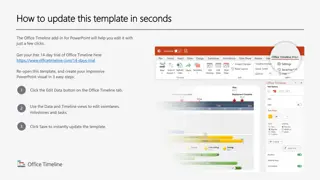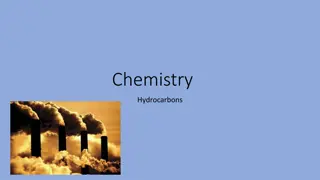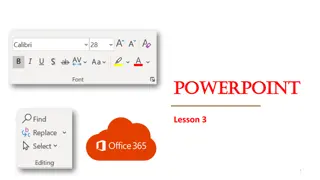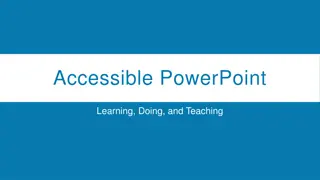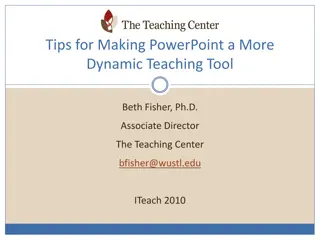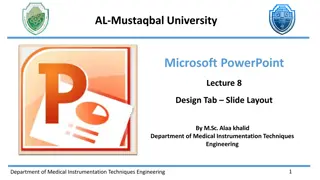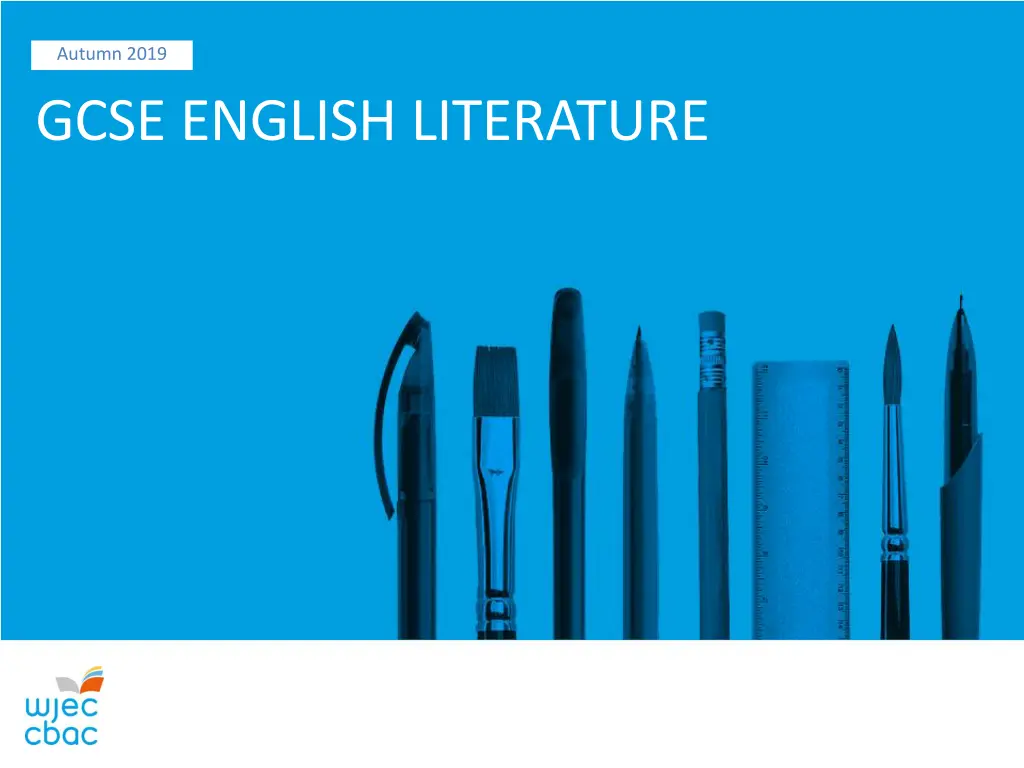
GCSE English Literature Exam Tips
Enhance your performance in GCSE English Literature exams with these valuable insights on extract and essay responses. Learn how to focus, analyze, and improve your responses effectively. Prepare for success with expert guidance tailored to exam requirements.
Download Presentation

Please find below an Image/Link to download the presentation.
The content on the website is provided AS IS for your information and personal use only. It may not be sold, licensed, or shared on other websites without obtaining consent from the author. If you encounter any issues during the download, it is possible that the publisher has removed the file from their server.
You are allowed to download the files provided on this website for personal or commercial use, subject to the condition that they are used lawfully. All files are the property of their respective owners.
The content on the website is provided AS IS for your information and personal use only. It may not be sold, licensed, or shared on other websites without obtaining consent from the author.
E N D
Presentation Transcript
Autumn 2019 GCSE ENGLISH LITERATURE
KEY FEATURES GCSE English Literature: Is assessed by examination and non-examination assessment. Has tiered examination units. Is unitised, with assessment in the summer series for Units 1, 2 and 3 and an assessment opportunity for Unit 1 available in January. There is no cash in available in January. Requires the study of whole texts across all 3 units including Shakespeare. Requires the study of Welsh writing in English through the poetry NEA Is graded A* to U Is subject to the 40% terminal assessment rule where 40% of the course must be taken at cash in and that 40% must count towards the final grade.
Autumn 2019 EXAMINERS REPORTS
KEY POINTS FOR EXTRACT RESPONSES Characteristics of good extract responses: Clear and sustained focus on the specific extract, not the context of the novel or storylines Selection of short, apt references to support points made Clear grasp of subtext, what s really going on in the extract Ability to use wider knowledge of the text to access subtext in the extract or to aid precise discussion of the events and characters presented Ways in which performance could be improved: Avoiding treating the extract as an unseen piece Using comments about structure to support comments on language. Why is that particular word effective in describing that character at this specific point in the text? Clear knowledge of what is being assessed here and what is not More thorough coverage of the extract A strong focus on the writer s choice of language at different points in the extract More practice on probing subtext and interpreting what is really going on in the extract, not relying on surface meanings
KEY POINTS FOR ESSAY RESPONSES Characteristics of good essay responses: Clear appreciation of how context shapes characters, where appropriate Selection of a range of apt events and quotations to develop and support thoughtful ideas Some analysis of how the writer s message is conveyed through characters and events The ability to comment on language use, structure and AO2 in general whilst building a successful and pertinent response Ways in which performance could be improved: Practice in how to use the wording of a question to show knowledge and insight Practice in creating clear, cohesive arguments which address the question asked More focused discussion of how contextual factors affect characters personalities, choices, ambitions, stories, where context is assessed Practice in selecting detailed textual evidence to support points made
KEY POINTS FOR POETRY RESPONSES Characteristics of good poetry responses: Coverage of both poems and a developed comparison of ideas, techniques and effects Probing of subtext, tentative interpretation rooted in the poems Strong focus on images, language and effects Ways in which performance can be improved: More exposure to ways in which poets use language in different ways More focus on how ideas are conveyed through imagery Careful reading of poems to avoid misunderstanding Practice in supporting ideas about mood and meaning with detailed reference to the poems
KEY POINTS FOR NEA Summary of key points Appreciation of the whole play in Section A, Shakespeare, is a requirement of the specification. Good responses in Section A are built upon a solid framework of understanding of the text and an ability to investigate the nuances of Shakespeare s language. In Section A and B it is important for candidates to provide appropriate textual support for their points through appropriate quotation. To gain marks in AO3 the links between poems must be credible and based closely on the texts. Comparisons should look at content, structure, mood, viewpoint, style, purpose and the imagery of each poem. This is not a checklist. Centres must make it clear if any annotations on the poems or plays were made during the assessment sessions as candidates are not allowed any kind of pre- prepared notes. The coversheet will be amended next year to reflect this.
Autumn 2019 RESOURCES AND SUPPORT
All the material you need to deliver our qualifications is available on our website
RESOURCES FOR TEACHERS Supporting teaching and learning Further digital resources to support the teaching and learning of a broad range of subjects can be found here: resources.wjec.co.uk
Any Questions? Contact our specialist Subject Officers and administrative support team for your subject with any queries. gcseenglish@wjec.co.uk @wjec_cbac @WJECGCSEEnglish wjec.co.uk

